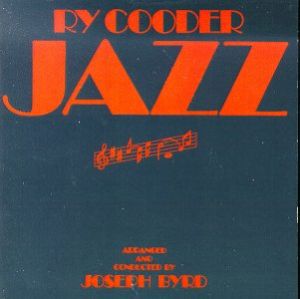
- Format: MP3

Beginning with his self-titled debut in 1970, Ry Cooder's records seemed to be as much history lesson as they were entertainment. Not because Cooder was trying to club you over the head with this stuff; he simply gravitated to great songs, no matter what the era or genre. Released in 1978, Jazz seems to be his first conscious attempt at a concept album, in the historical sense. Here he pays homage to some of the early tunes and masters of jazz, ranging from the late 1800s through the "coon songs" of the early part of the next century, to the ragtime and "Spanish" music of Jelly Roll Morton, and the sophistication of cornetist Bix Beiderbecke. The only living artist (at the time of release) who's represented here is the great Bahamian guitarist Joseph Spence, who recorded from the '50s through the '80s, and whose syncopated style was extremely influential in Cooder's own development as a guitarist. Spence's sacred songs are presented here in string and brass band arrangements that emphasize the Caribbean connection between his music and Morton's habaniera pieces. The complexity of the material on Jazz, as well as the arrangements by Joseph Byrd, dictate that this is Cooder's most polished and orchestrated effort to date. Whereas in the past, even at their most removed, Cooder's records usually kept at least one foot in rock & roll or blues, Jazz can, at times, lack some of that fire and be almost bookish in its approach. Still, there is enough excitement in the music's intricacies and Cooder's beautiful, fluid playing to forgive the politeness of some of the performances. From the informative liner notes by Ry Cooder himself to the brilliant compositions, Jazz is, at the very least, educational. But, a little time spent with this music and you'll see why it was and continues to be relevant, as well as beloved.